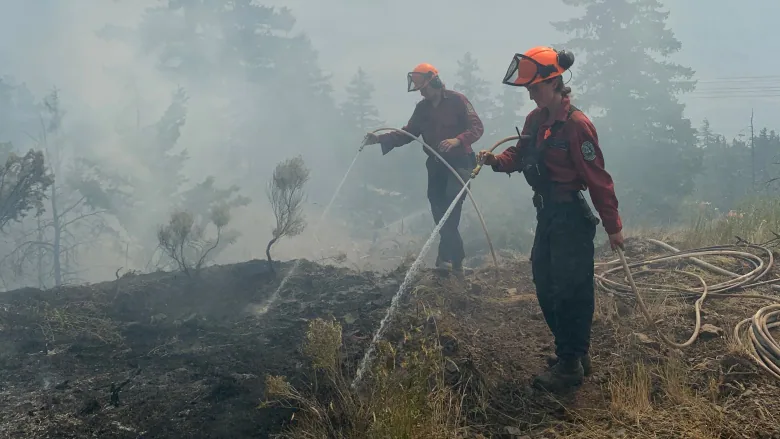The National Union of Public and General Employees (NUPGE) has long promoted the goal of equal treatment for workers who are firefighters, regardless of title, rank, or site location. The current unequal treatment of forest firefighters (i.e., wildland firefighters) is rooted in their exclusion under the Public Safety Occupation provisions of the federal Income Tax Act. NUPGE has been campaigning to help ensure forest, or wildland, firefighters are treated as equal to other firefighters regarding pensionable earnings and pension accrual.
We are asking the federal government to correct this exclusion by amending the definition of firefighter in the National Occupational Classification (NOC) to include forest/wildland firefighters. Because this problem falls under the constitutional authority of the Parliament of Canada, it is one the federal government can solve, and without legislation.
The goal is to include forest firefighters under the Public Safety Occupation provisions of the federal Income Tax Act, and thereby accord them equality with other firefighters with respect to pensionable earnings and pension accrual. We are calling on the government to extend to forest firefighters the same pension tax rules, thus ensuring that all firefighters are treated equally.
The request is to amend the definition of firefighter under the Government of Canada NOC to include any worker whose main duties entail fighting fires in forests. Currently, the definitions in the NOC list “Exclusions,” one of which is “forest firefighter” (in 84111 Silviculture and forestry workers).
In brief, under the National Occupation Classification, forest firefighters are not defined as firefighters. Instead, they are classified as silviculture and forestry workers. And even this description of main duties in does not accurately represent what forest firefighters actually do. This exclusion of forest firefighters from the official definition is not just trivial semantics. The narrow definition of firefighter directly harms the economic well-being of forest firefighters: it’s a built-in inequality. It does harm by denying similar pension rights to firefighters who work in forests compared to the pension rights of firefighters who work in other sites, such as airports, ships, and urban neighbourhoods.
Forest firefighters do dangerous and important work, and they deserve to be recognized as equal to other structural, or municipal firefighters. Regular exposures to harmful substances above occupational exposure limits mean it is unreasonable to expect wildland firefighters to experience health outcomes significantly different from those of structural firefighters. With climate change and population growth, we expect an increase in unprotected exposures to more toxic smoke. This ongoing and increasing risk to their long-term health deserves to be recognized.
By addressing this inequality in the application of the maximum pension accrual rate, the federal government would be recognizing the work forest firefighters do, the inherent risks of this occupation, and the long-term health toll that serving our country in this way entails. The workplace stress and hazards of this occupation have all too often meant that these workers are unable to enjoy a full and long retirement.
Removing the exclusion of forest firefighters from the National Occupation Classification category of firefighter would extend the definition of public safety occupations in the Income Tax Regulations to include forest firefighters. This will be further recognition of the contributions of these workers and will help them take another step towards retiring at an age that will allow them to enjoy a well-earned period of rest.
More information:
Backgrounder: Equal Treatment for Forest/Wildland Firefighters

